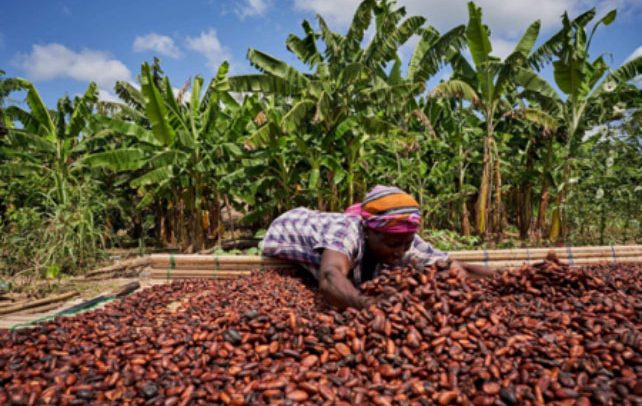I write with a heavy heart on a matter that strikes at the very soul of our democracy and the dignity of Ghana’s hardworking cocoa farmers. Like many Ghanaians, I received with deep dismay the Government’s decision not to increase the cocoa producer price for the 2025–2026 crop season. As Executive Director of the Busia Institute for Rural and Democratic Development (BIRDD), and as a committed citizen of this Republic, I feel duty-bound to add my voice to those calling for a reconsideration of this disappointing course.
It is particularly painful because, during the 2024 election campaign, a clear and categorical promise was made to the Ghanaian farmer—that the cocoa producer price would be doubled from the then-existing GH¢3,100 per tonne. This was no vague aspiration; it was a solemn commitment, delivered with the full moral and political force of a candidate seeking the people’s mandate.
Now, however, the Chief Executive of COCOBOD has offered an astonishing justification: that the President, then a candidate, made the promise without full knowledge of COCOBOD’s debt situation. By this logic, the pledges that won the trust and votes of Ghana’s cocoa farmers were made without the basic due diligence that leadership demands.
If true, it reflects an extraordinary level of recklessness, suggesting that those who sought power did so without a full understanding of the very sectors they vowed to transform. If untrue, it exposes an even graver offence—that solemn promises were knowingly made without the intention or capacity to honour them. Either way, the result is the same: a profound betrayal of public trust and a glaring symptom of the arrogance that increasingly alienates leaders from the realities of the people they serve.
Democracy, at its core, is about trust—trust between leaders and citizens, trust that when promises are made, they will be kept. When governments renege on promises that directly affect the livelihoods of their people, particularly vulnerable rural populations, the consequences go beyond economics. They strike at the very heart of democratic culture. They breed cynicism, apathy, and disillusionment. They erode the credibility of political institutions and weaken the participatory spirit that sustains democratic governance.
Cocoa farmers are not asking for charity; they are asking for justice. Cocoa has been the backbone of Ghana’s economy for generations. It finances education, healthcare, infrastructure, and foreign exchange stability. Yet those who produce this national wealth often live in conditions far removed from the prosperity their labour sustains. Today, as farmers face rising costs of inputs, inflationary pressures, climate uncertainties, and global market volatility, a fair and improved return on their sweat and toil is not just desirable—it is necessary.
By deciding not to increase the cocoa producer price, and by offering excuses that insult rather than inform, we risk sending the wrong message to those who have given so much to Ghana’s development. We tell them, inadvertently or otherwise, that their sacrifices are invisible, their voices unheard, and their futures expendable. This is not the Ghana we aspire to build.
At BIRDD, we advocate for a democratic culture rooted in integrity, accountability, and rural empowerment. We believe that political promises must be treated as sacred covenants with the people. Upholding them is not merely a matter of political expediency; it is a moral obligation. Failure to do so endangers the fragile trust upon which democratic governance rests.
I respectfully appeal to the Government of Ghana to reconsider this decision. It is not too late to act with honour. A revision of the cocoa producer price, commensurate with current economic realities, would send a powerful signal that in Ghana, leadership is synonymous with responsibility, empathy, and unwavering commitment to the well-being of all citizens.
The strength of our democracy lies not only in the holding of elections but in the daily faith citizens have in their leaders to act justly and honourably. We must protect that faith with every policy we make and every promise we keep.
Let us remember: democracy does not die at the ballot box; it withers when promises are broken, when hope is betrayed, and when the farmer—the backbone of our nation—is forgotten.
Our cocoa farmers deserve better. Ghana deserves better. And it is within our power to deliver better.
Let us, together, honour our promises.
By Anane Agyei, Executive Director, Busia Institute for Rural and Democratic Development (BIRDD), Email: info@busiainstitute.org


